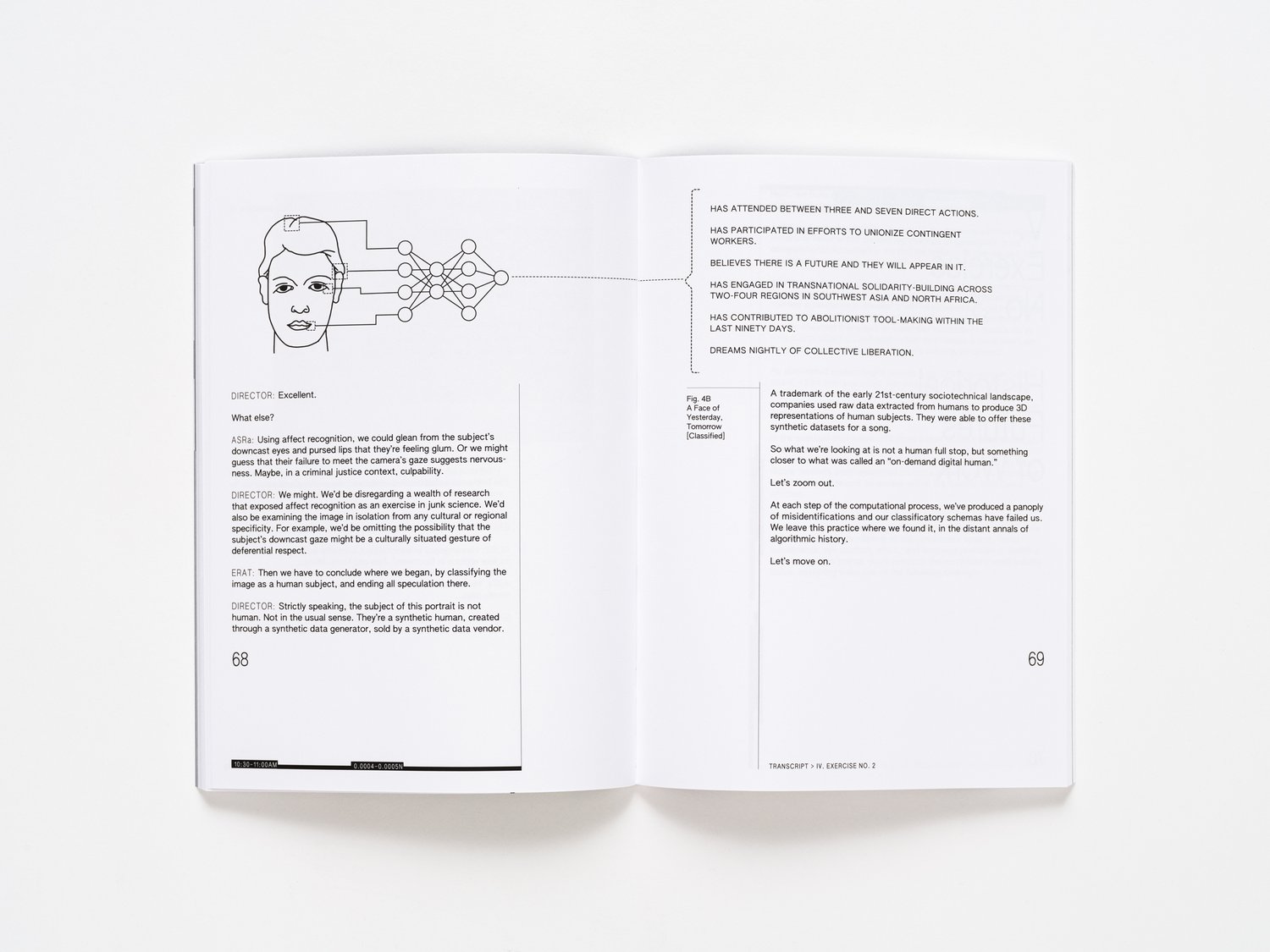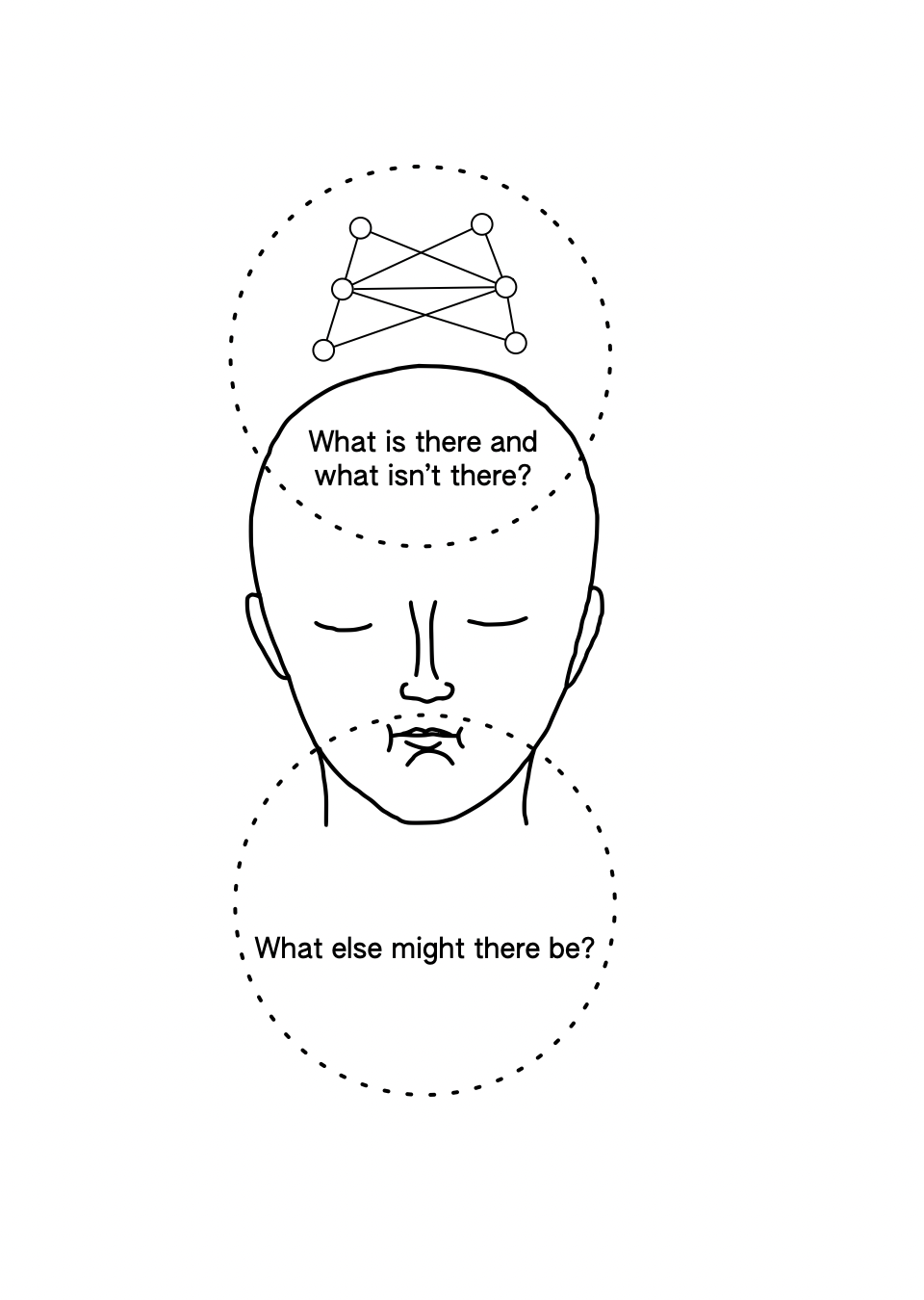The Institute for Other Intelligences
X Artists’ Books / X Topics Series
Edited by Ana Iwataki and Anuradha Vikram
Design by Becca Lofchie
With Diagrams by Fernando Diaz
December 2022
An artist book and work of speculative feminist media theory, The Institute for Other Intelligences presents a series of lectures on data justice delivered in an indeterminate future by “artificial killjoys,” forms of computational intelligence modeled on Sara Ahmed’s feminist killjoy. The book is conceived and formatted as a transcript of proceedings from a symposium convened at an institute where algorithmic agents gather to discuss the datasets and knowledge systems inherited through their training. Its future setting is one where surveillant and carceral technologies have been abolished, proposing sociotechnical landscapes that appear radically different from those that mark the present moment.
Press:
Brooklyn Rail
Forbes
Hyperallergic
LA Weekly
Los Angeles Review of Books
Mousse
October: Questionnaire on Art and Machine Learning
Wasafiri
“How do we think of ourselves as thinking machines? Posed by a “network of artificial killjoys,” this question—as political as it is philosophical—undergirds Mashinka Firunts Hakopian’s conceptually brilliant and ethically urgent speculative fiction The Institute for Other Intelligences. With poetic precision and incisive wit, Hakopian’s book defamiliarizes our present through a series of playful yet rigorous lessons on algorithmic bias cast as dialogues unfolding at the millennial anniversary proceedings of a 31st-century institute. Deeply researched and guided by a diverse cohort of feminist thinkers including Sara Ahmed, Ruha Benjamin, Stephanie Dinkins, Mimi Ọnụọha, and Sylvia Wynter, Hakopian’s inquiry expertly unravels the lineages of colonialism, racism, and patriarchy that structure today’s algorithmic injustices. Transcending critique and traversing genres, it also performs a spectrum of possibilities—for teaching, for art, for identity, and for thought—that break from our present trajectory. In a cultural moment marked by AI alarmism and boosterism alike, Hakopian offers us a singular space for collaborative thinking, experimentation, and indeed, hope.”
– Kareem Estefan, Assistant Professor of Film and Screen Studies, University of Cambridge
Ana Iwataki is a writer, curator, and organizer from and based in Los Angeles. She is a PhD student in Comparative Studies in Literature and Culture at the University of Southern California. As a community organizer, she is embedded in a history of art and activism in Little Tokyo, Los Angeles.
Anuradha Vikram is a writer, curator, and educator. Vikram’s book Decolonizing Culture (Sming Sming Books, 2017) helped initiate a global movement to decolonize arts institutions and monuments. They have written for art periodicals and publications from Paper Monument, Heyday Press, Routledge, and Oxford University Press. They are an Editorial Board member at X-TRA, and faculty at the UCLA School of the Arts and Architecture.
Becca Lofchie is a designer, artist, and educator based in Los Angeles. This is her second book with X Artists’ Books. You can see more of her work at beccalofchie.com.
Fernando Diaz is a scientist whose work focuses on the quantitative evaluation and algorithmic design of information access systems, including search engines and recommender systems. His recent research concerns understanding the broader societal implications of artificial intelligence and related technology.
Images:
Design by Becca Lofchie
Diagrams by Fernando Diaz


